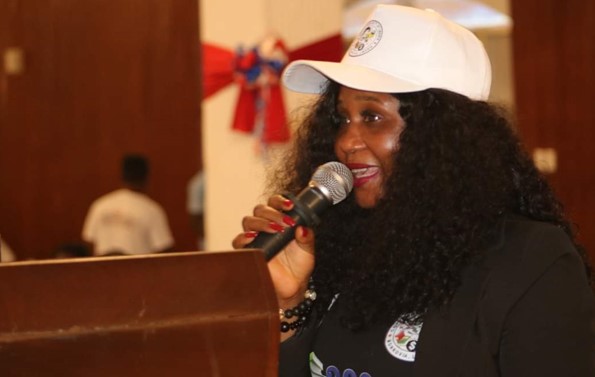MONROVIA, Montserrado—The new administration at the Liberia Intellectual Property Office says it has developed a strategic plan to strengthen the entity’s capacity to properly protect intellectual property rights in accordance with international best practices.
LIPO Director General Garmai Koboi made the disclosure on Friday, May 3, at the celebration of World Intellectual Property Day held at the Executive Pavilion in Central Monrovia. This year’s theme was “Intellectual Property and Sustainable Development Goals Building our Common Future with Innovation and Creativity.”
Koboi said a team of dedicated intellectual property professionals recently developed a strategic plan to make Liberia an IP-conscious nation. She said LIPO will adopt the plan soon.
“At the core of this Strategic Plan lies a multifaceted approach aimed at harnessing the transformative power of intellectual property to underpin our nation’s socio-economic growth,” she said.
She said the strategic plan considers quantifying the contribution of intellectual properties to the Liberian economy to help provide empirical evidence needed to advocate for greater recognition and prioritization of intellectual property in national development plans.
“Showcasing the impact of intellectual property on the country’s GDP and job creation and highlighting the economic cost of infringement will spark nationwide awareness and respect for intellectual property—thanks to the availability of economic data that would foster easy public understanding while serving as the basis for data-driven policy decisions and regulations,” she said.
Koboi explained that the plan also targets the digitalization of LIPO’s operating system, which is expected to be completed by August of this year. Such digitization would remove barriers to intellectual property protection.
Koboi further said that following the digitalization of LIPO’s operating system, the registration processes for copyrights, patents, trademarks, and any other intellectual property rights will be easy and efficient from anywhere in the country and the world.
In remarks, Information Minister Jerolinmek Piah pledged his ministry’s commitment to working with LIPO to train tourism actors and businesses in intellectual property rights and strategies to uplift tourism and increase competitiveness.
Piah said, “In Liberia, we continue to limit IP indicators to only creators and innovators in arts and culture, and leaving out tourism, an important component therein.”
Piah noted that the intensive training will be eye-opening for tourism businesses and artists who may not be aware of their trademarks and patent rights.
The program’s keynote speaker, UNDP’s resident representative Louis Kuukpen, said UNDP would continue to support efforts to strengthen legal and regulatory systems and promote livelihoods and economic transformation through collaboration with relevant stakeholders.
“Liberia is endowed with great talents, cultures, [and] creative and artistic minds,” Kuukpen said. “What is needed is the resolve to turn such assets into productive gains and wealth. I would therefore like to remind the government that a protected intellectual property will be a great foundation upon which tourism will thrive in Liberia, consistent with the ARREST Agenda.”
He said UNDP and partners will continue to provide platforms for promoting the creative economy as a tool for economic diversification and sustainable, equitable, and inclusive livelihoods.
Kuukpen said UNDP will focus on national institutional arrangements related to the creative economy, strengthening national strategies and policies and legal and regulatory systems to ensure intellectual property rights work for the owners and for sustainable development.
The United Nations Conference on Trade and Development Creative Economy Outlook 2022 says international trade in creative goods and services generates increasing revenues for countries. Still, creative services exports vastly exceed those of creative goods.
It adds that global exports of creative goods represented US$524 million in 2020, while world exports of creative services reached US$1.1 trillion.
Featured photo by LIPO’s Press Bureau.



